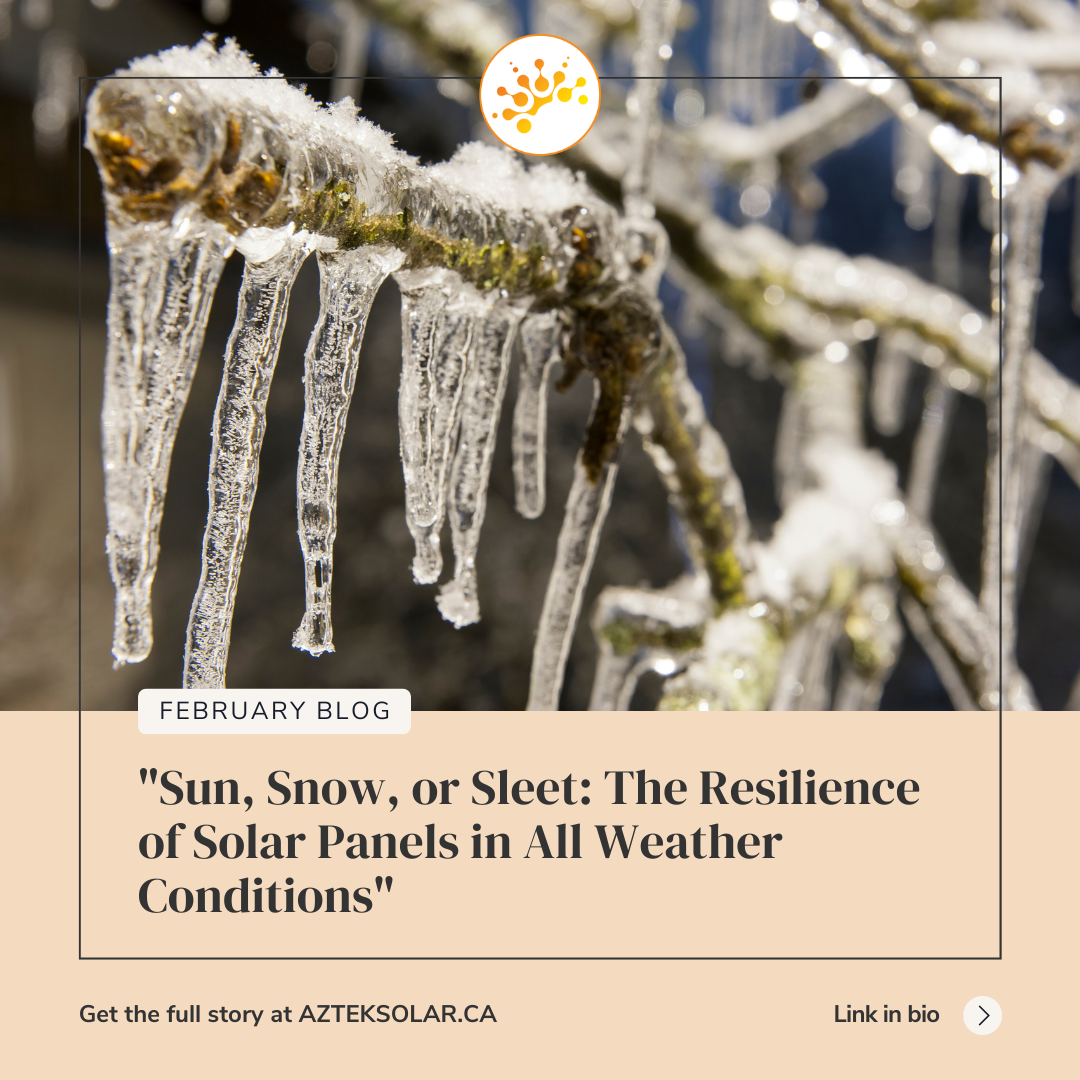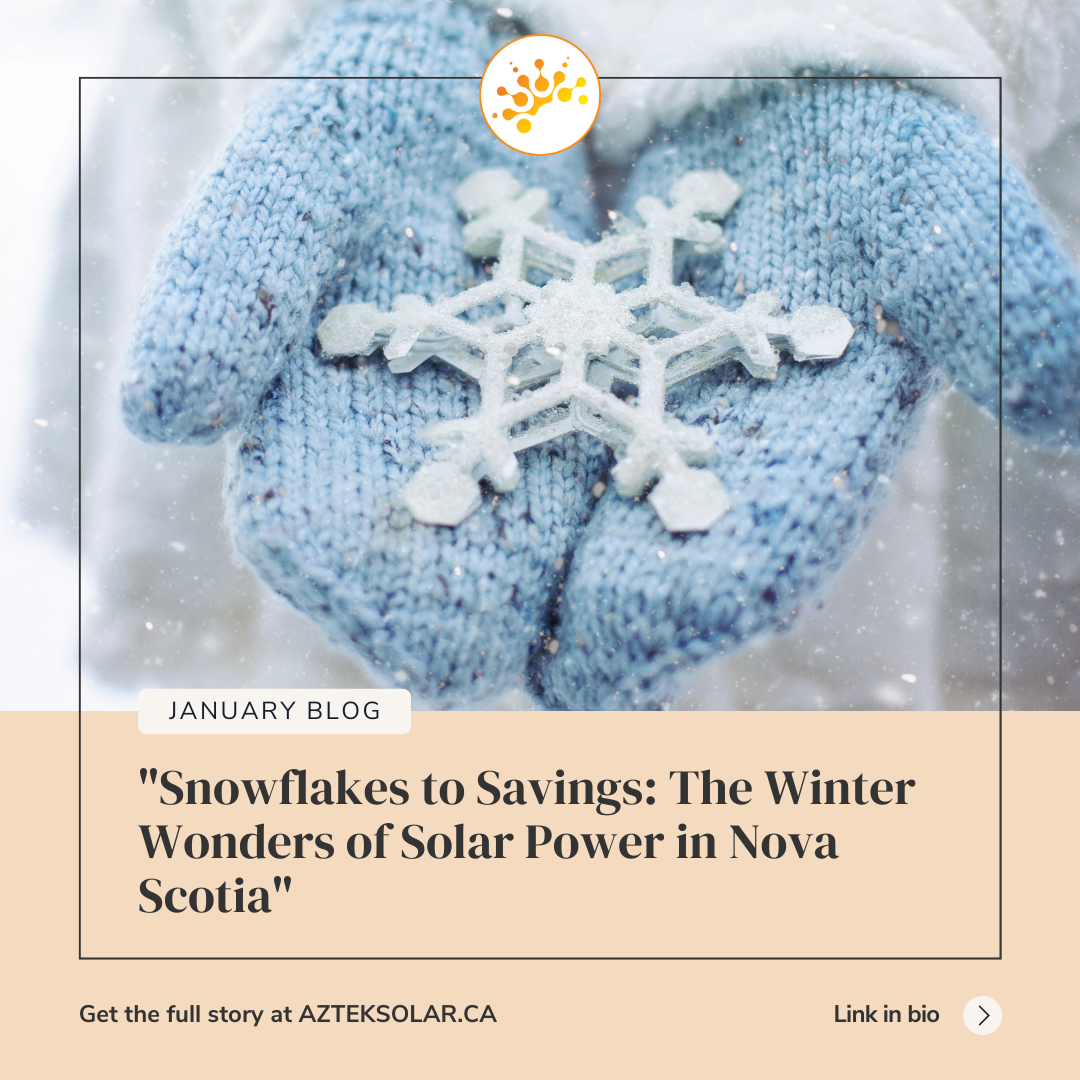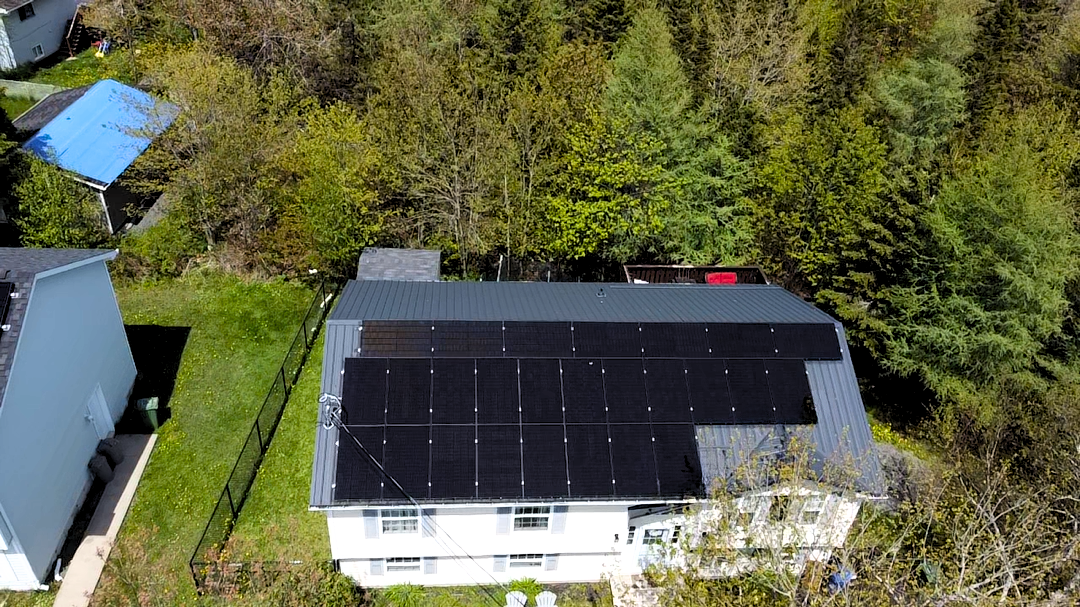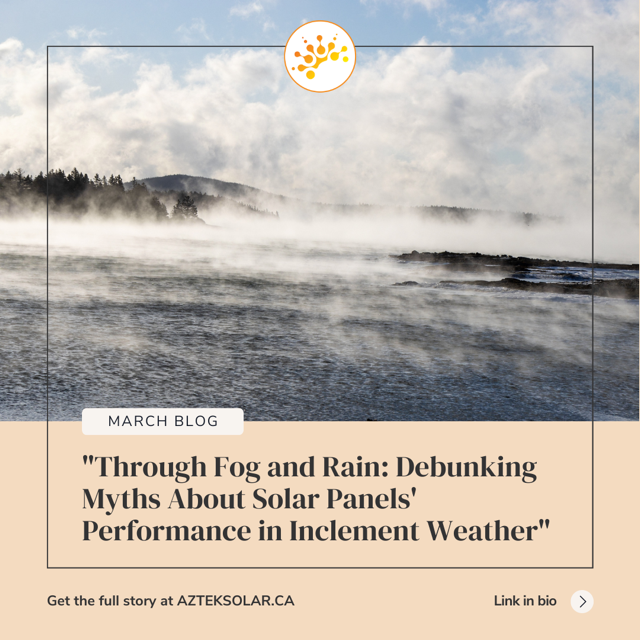Is the Fall or Early Winter A Good Time To Install Solar Panels?
I was getting my morning brew at a neighborhood coffee shop recently, when a regular customer spotted me (might be because of the new vehicle branding? 😊 ) and started a conversation about the best time of year to install solar panels. It was a great chat, and I’m happy to summarize that conversation for you today.
Technically, and surprisingly to some, solar panels operate more efficiently in cooler weather, so they actually love cold Atlantic Canada winters. But of course, there is a trade-off; we get fewer daylight hours of solar production.
Given the slope towards shorter daylight hours, we see energy production drops starting in October, and further decreasing in November and December. In fact, it’s not unusual for solar production to decrease 20% – 35% between September and October. Not surprisingly, most solar systems generate an average of 60% of their annual production in the warm months.
The winter sun is lower in the sky, changing the angle at which it hits your panels and increasing shade from nearby trees. In fact, trees that you determined were out of scope from blocking the summer sun can interfere with solar radiation paths as the sun settles more in the southern hemisphere. Even deciduous trees without their leaves can greatly impact winter production. And that all assumes it’s not cloudy, foggy or snowing, and the panels aren’t snow-covered.
So, as we meander into the Fall season, and get ready to bundle up for Winter, we notice more and more how the daylight hours are decreasing. Some people think this time of year is not an optimal time to install a solar energy system – quite the contrary!
While typical installation months are between March and September, it is not unusual to prepare your home in November or December for the solar energy production that escalates as we move toward longer daylight hours of January.
Realistically however, there’s no denying it. Total solar output absolutely does diminish during the winter months – due to shorter days, less direct sunshine, and potential snow fall. So, you won’t save as much money from your solar power investment as you would during the sunnier, longer days of the year.
But you will save money.
Moreover, focusing on the day-to-day performance of your Solar PV system is the wrong approach. What ultimately matters are the average annual savings that your Solar PV system delivers:
• On some days, your panels will generate more clean power than you can use.
• On other days, the performance will dip, and you won’t get as much energy.
But instead of worrying about individual peaks and valleys, we suggest that you should focus on the cumulative savings of your clean power investment.
It is this long-term focus that has allowed our customers in Nova Scotia to emerge as solar energy benefactors – despite our sometimes notoriously long and dark winters.
Still have questions about solar power and wintertime performance?
Aztek Solar is here to help. Schedule a free consultation with the Aztek Solar Team today.
Thanks for Reading!
Brian McKay
(aka The Solar Guy)


For more information about a Solar Energy Solution, including Whole Home Solar PV and Solar Pool Heating solutions for your home or business, please contact AZTEK SOLAR for your free on-site evaluation and ask about the $3,000 cash-back rebate now available.
AZTEK SOLAR is a leading Nova Scotia residential and commercial solar installer, serving Halifax, Dartmouth and the surrounding areas throughout rural Nova Scotia.
With expertise in a wide variety of systems, including Solar PV (grid-tied) systems, solar hot water and solar pool heating systems, AZTEK SOLAR has helped hundreds of Atlantic Canadian homeowners, farm operations, business owners and municipalities lower their energy bills while reducing their carbon footprint.
#SolarIsNow #RenewableEnergy #AztekSolar



